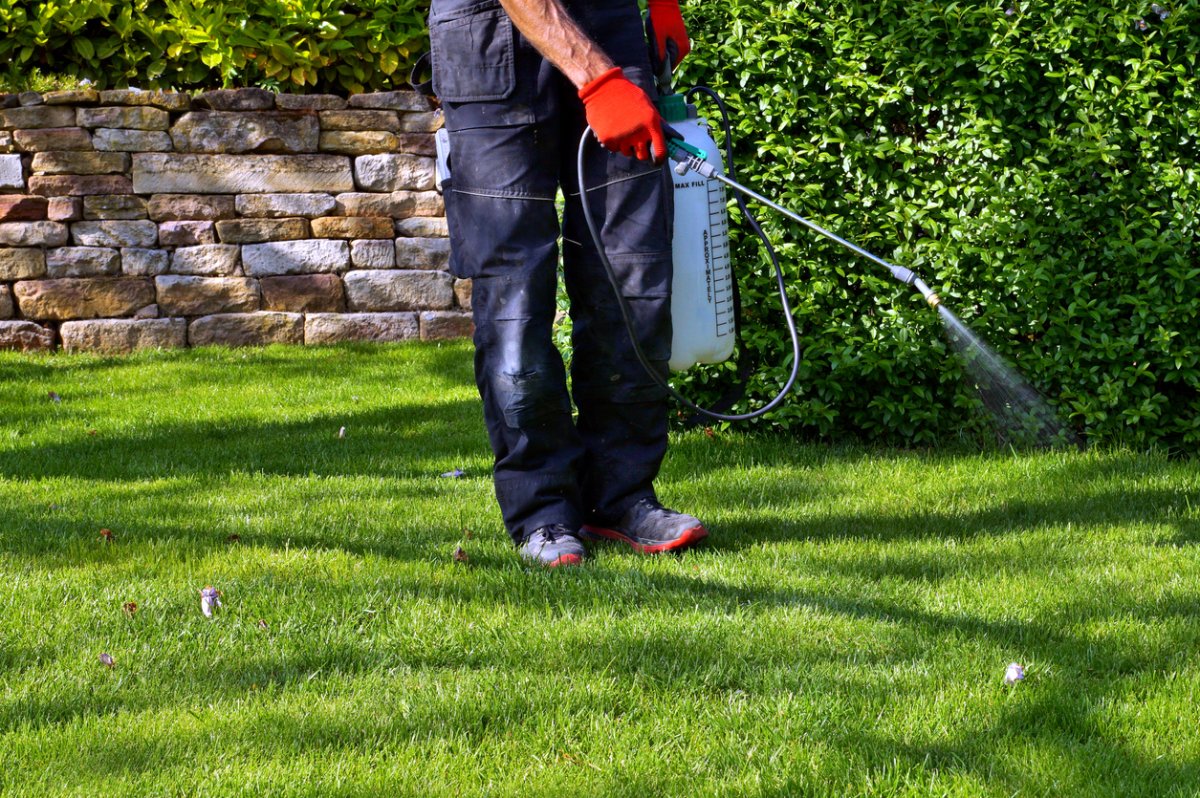

We may earn revenue from the products available on this page and participate in affiliate programs. Learn More ›
When you’re trying to eradicate weeds from your lawn or garden, the best choice is to choose sustainable and natural methods and products. Many commercial weed killers are formulated with chemicals that can harm the environment or threaten the health and safety of people and animals. If you have tried safer alternatives and still feel that using a commercial weed killer is necessary, knowing how to apply the product properly is essential. Follow the safety measures outlined below to mitigate harm to people, pets, and our Earth as you work to kill weeds that are in your flower beds or your lawn.
RELATED: The Best Weed Killers for Flower Beds, Tested
1. Read and follow the manufacturer’s instructions.
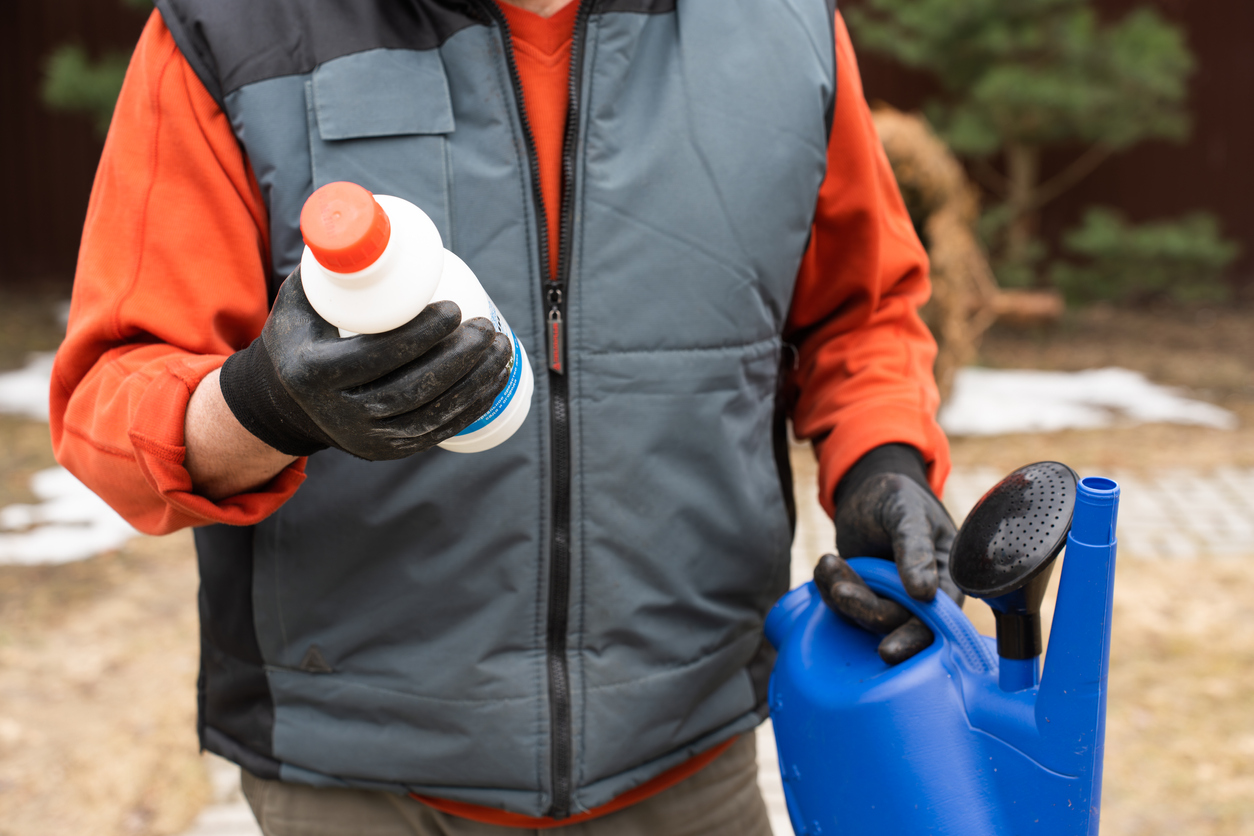
The first thing you should do before applying any chemical weed killers is to closely read the directions on the product’s label. Depending on the specific weed killer, you may need to mix it with water before applying. Always follow these instructions to avoid applying a higher concentration of the product than necessary to the weeds in your yard. Higher concentrations pose a serious threat to the rest of the plants in the yard without being any more effective at killing the weeds that you’re targeting.
Some manufacturers list other important precautions that should be followed when working with the chemicals. It is important to verify whether you’re using a selective or nonselective herbicide. Selective herbicides target specific weed species, but won’t kill grass. Nonselective herbicides don’t discriminate between weeds and non-weeds. This means that they will kill any plants that they come into contact with, much like what you can expect when you use vinegar as a weed killer.
RELATED: Homemade Weed Killers and Preventative Treatments That Really Work
2. Learn how to use your sprayer.
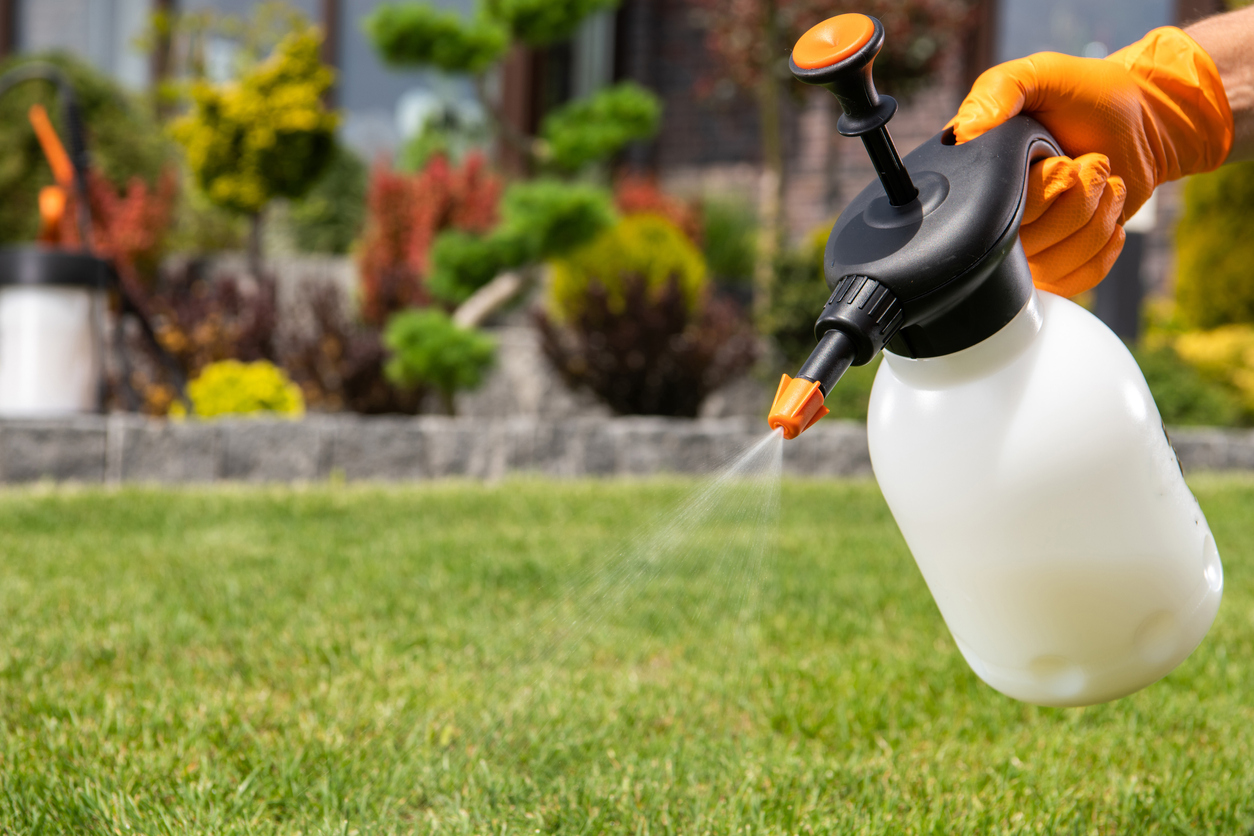
Understanding how to use a sprayer to apply commercial weed killers is essential. If the sprayer is not operated properly, you might not be able to control where the weed killer is applied, may dispense more than is needed, or might cause the chemicals to spread to other parts of the property. When using power sprayers, it is important to calibrate the sprayer properly before using it. Proper calibration will help minimize accidental drift of the chemicals.
If a sprayer has a pump, be sure not to pump it too much. Over-pumping will result in finer droplets of the chemicals. These droplets will spread farther, causing greater harm to other plants and wildlife.
RELATED: 11 Types of Lawn Weeds and How to Control Them
3. Do not apply weed killer on hot days.

When applying commercial weed killers, it is important to do so on a cooler day. Spraying these chemicals on days when the weather is hotter can result in the release of more fumes into the air. Fumes and vapors will be able to travel farther distances more easily, leaving more harm in their path, than the liquid droplets of the chemicals.
Moreover, when the temperature is very hot, the weeds in your garden are more likely to be stressed from the heat. This will make them less susceptible to the weed killers. Wait until the temperature is below 80 degrees to spray weeds.
RELATED: We Researched More than 20 Options to Find the Best Organic Weed Killers
4. Pay attention to the wind.
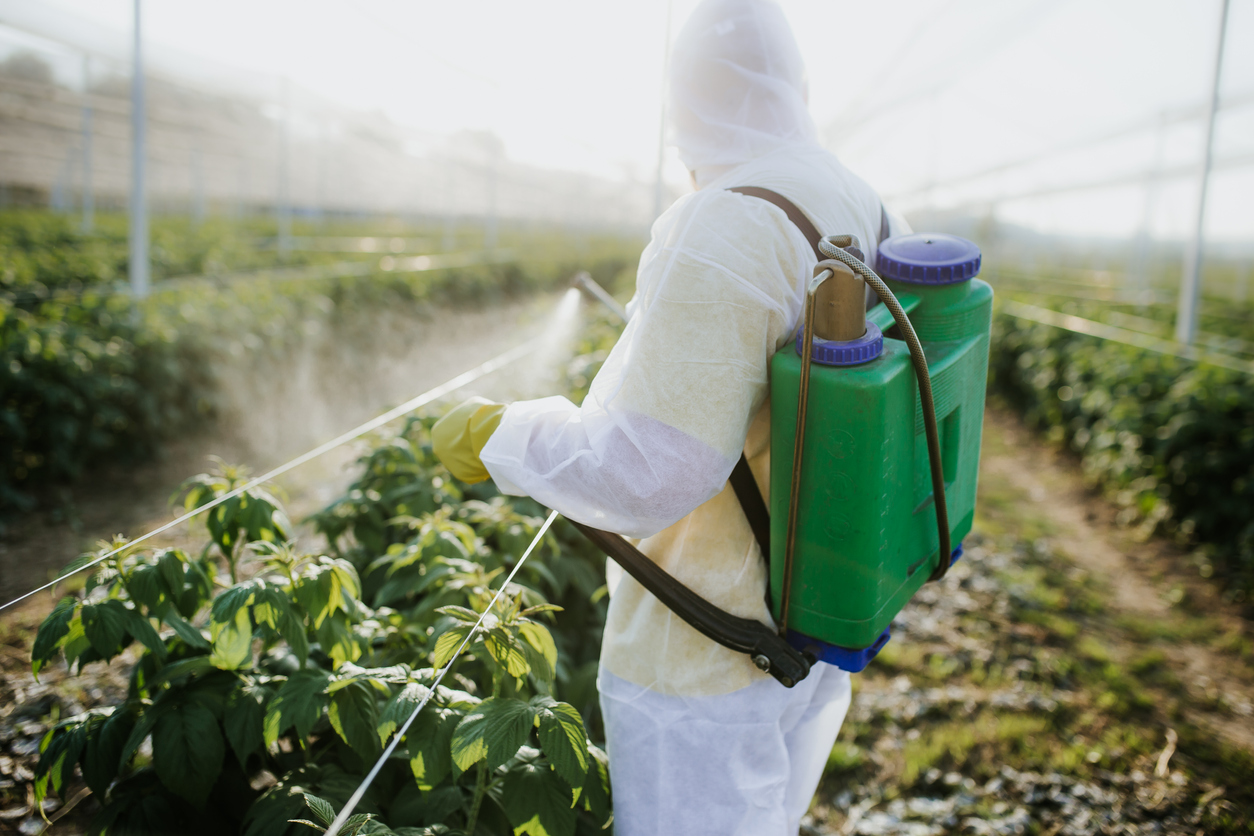
Noting the wind speed and direction is also important when working with weed killers. If the wind is strong, it can make the spray drift away from the intended target. Depending on the direction of the wind, this could result in the chemicals hitting other plants in your garden, blowing onto you, or landing somewhere else that you don’t want them.
RELATED: How to Make Weed Killer: 6 Methods That Are Both Natural and Effective
5. Work to prevent runoff.

Runoff can be a serious problem with chemical weed killers. If the chemicals make their way into sewers, drains, or nearby streams or rivers, they can pose a major threat to aquatic animals. One way to minimize the chance of the chemicals running off of your property and into waterways is to avoid spraying when rain is in the forecast. Try to spray weed killers for Bermuda grass and other chemicals when there will be a minimum of 24 hours before rain is likely to fall.
When rinsing your spraying equipment, avoid working near any gutters or drains. In fact, the ideal location to rinse equipment is over the area you treated, since this will contain the spread of the weed killer.
RELATED: 10 Tips for Pulling Weeds and Keeping Them Out of Your Yard
6. Work away from children and pets.
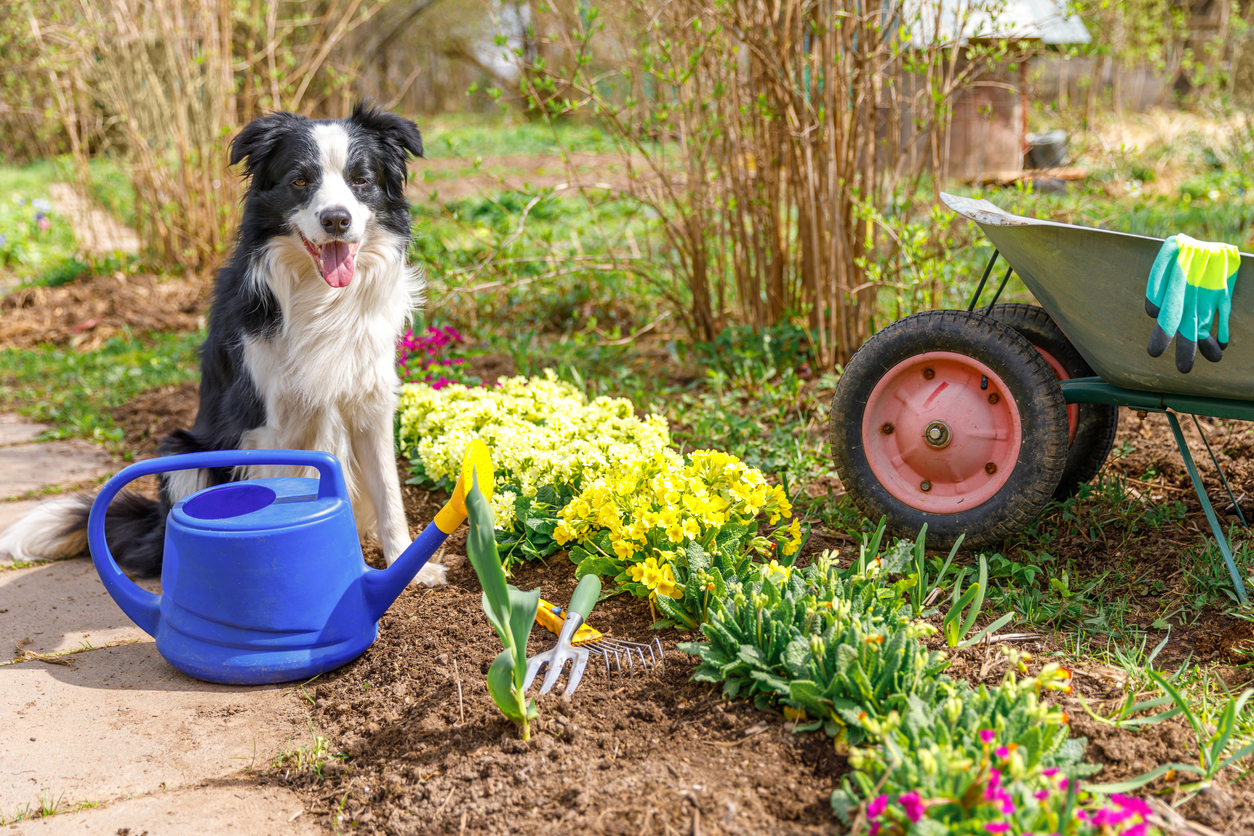
Because of how toxic the chemicals in weed killer can be to people and animals, never spray these products if children or pets are nearby. Leave them safely in the home and keep them away from the sprayed area until the product has dried completely.
RELATED: 5 Things to Do With Weeds After You Pull Them
7. Wear protective clothing and gear.
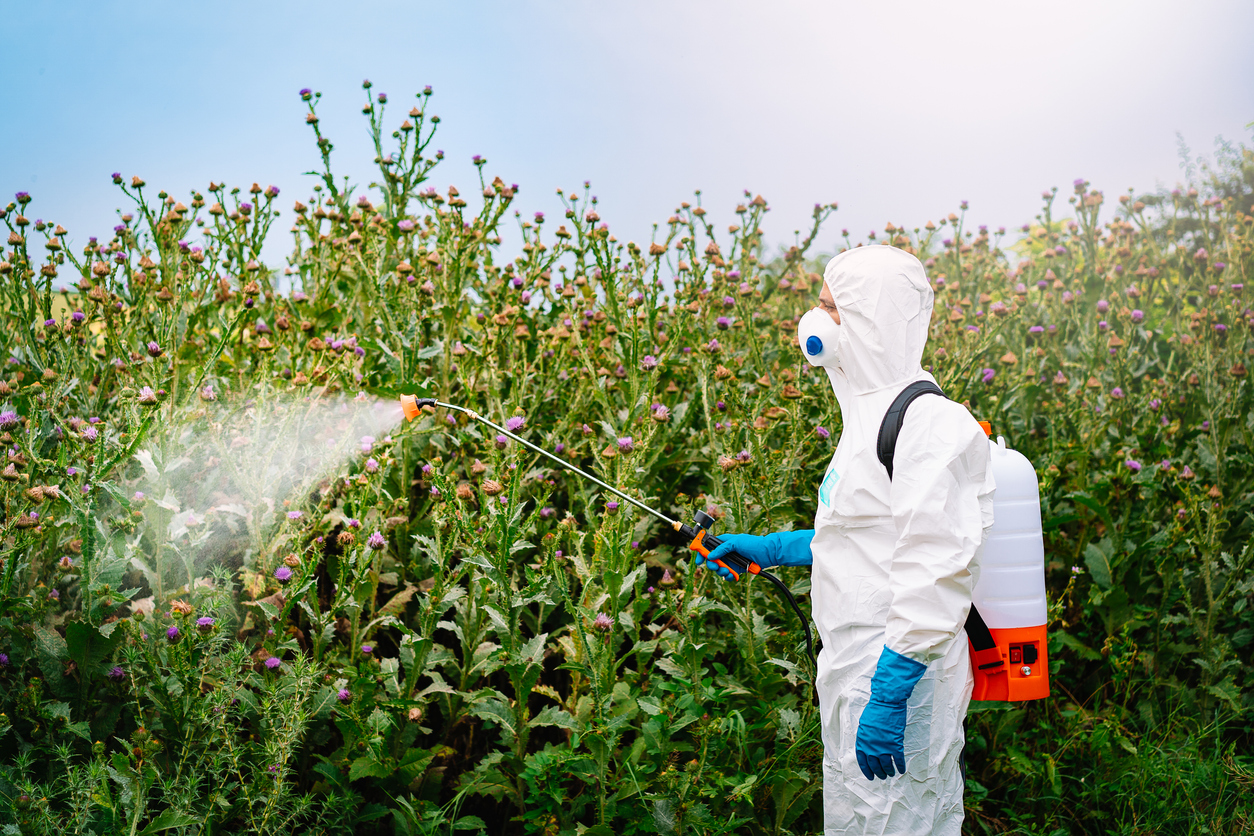
Protecting yourself when working with commercial weed killers is also important. Cover your skin to avoid accidentally coming into contact with the herbicides. Wear long pants, a long-sleeve shirt, socks, shoes, and gloves. Don’t forget to also protect your eyes and face with goggles and a mask.
After you’ve finished working, wash all of your protective gear. Clean machine-washable items in hot water, separate from other items. Be sure to also wash your hands and any other parts of your body that could have come into contact with the chemicals before eating, touching your face, or using the restroom.
